Inspire Suffolk Colville House
Inspire Suffolk Colville House
Peter Aldous MP visits Tesco Fareshare
Peter Aldous visits Inspire Suffolk, a charity supporting young people and children in Suffolk at Colville House on School Road.
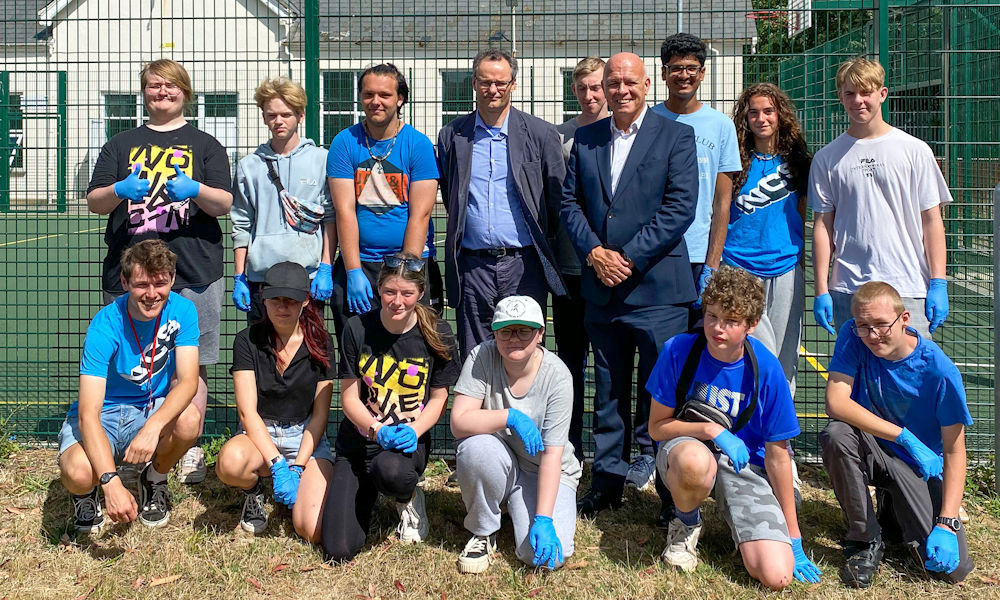
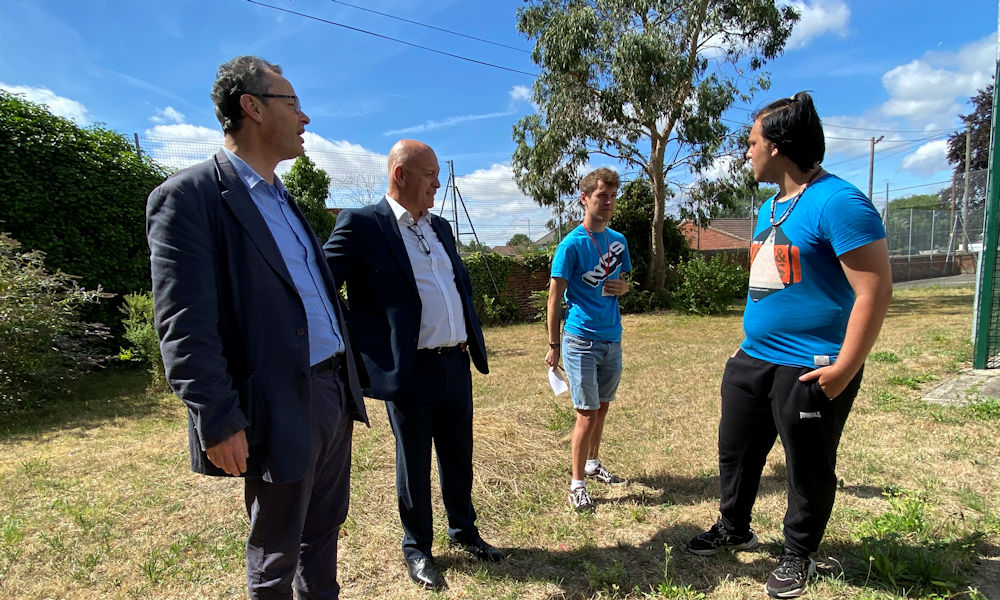
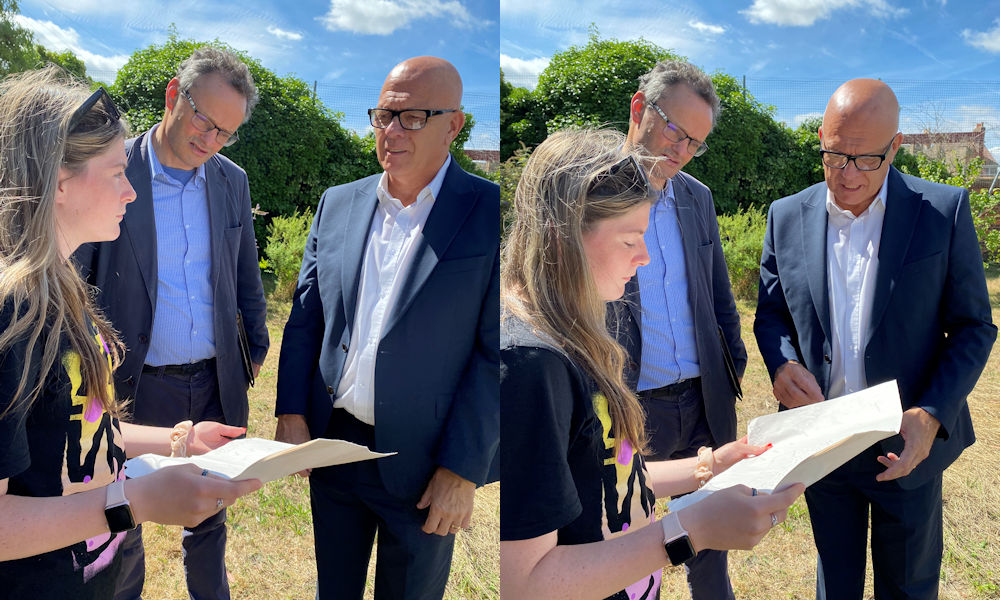


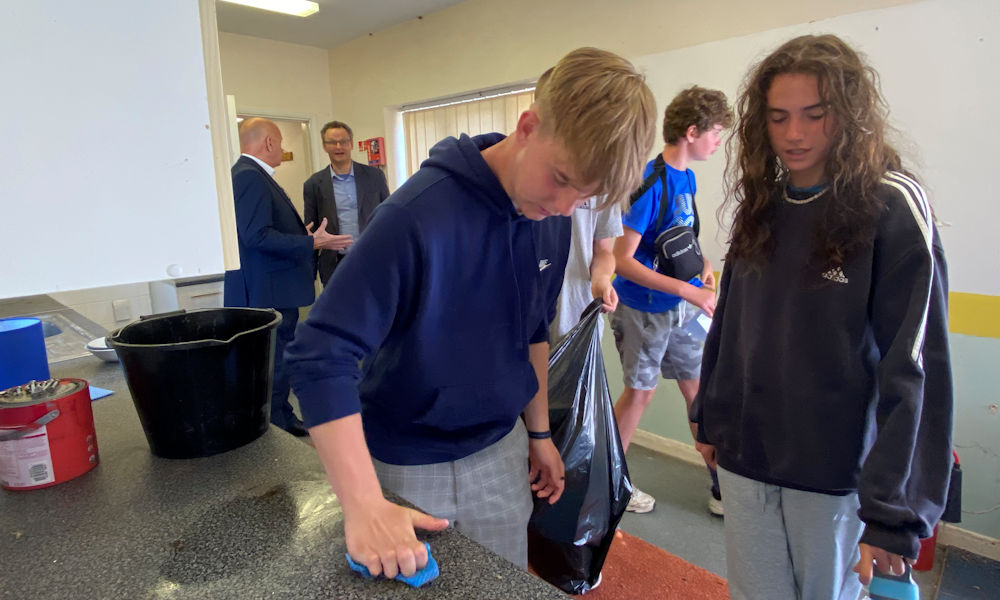
Suffolk’s Ukraine Task Group provides regular updates on the situation in Suffolk along with information about the work of the county council and partners within the Task Group and answers to frequently asked questions.
More information and all the recent bulletins can be found on their website here.

Peter Aldous is delighted to be sponsoring the 'Growing Business of the Year' Suffolk Chamber in Lowestoft & Waveney Business Award.
This award as well as many others are now open for entry - why not enter your business or nominate another business or individual.
These awards enable local businesses of any size or sector to showcase their excellence, growth, innovation, talent, their hard work, success and lots more!
To find out more click here.
Don’t delay - entries close 30 September 2022.
Peter Aldous writes...
The government has approved Sizewell C’s Development Consent Order (DCO), a major milestone in the project and a massive positive step for Suffolk.
Suffolk is often assumed to be a wealthy part of the country. However, areas like Lowestoft, just up the road from the site of Sizewell C, has an average income 17% lower than the rest of East Anglia. Large infrastructure projects like Sizewell C will help to tackle inequalities like this. Suffolk may not be the first place people think about when they hear “Levelling Up”, but any government that seriously wants to address regional inequality needs to account for areas like Lowestoft, and embrace projects like Sizewell C as ways of allowing them to reach their full potential.
The promise of a generation of high skilled, lifelong careers offered by Sizewell C could reverse the trend of families being forced apart as young people are unable to find training opportunities linked to high quality jobs in the local area. Not only will it bring thousands of opportunities for high paid employment, it also holds the potential of putting Suffolk on the map as a green energy hub, supporting Britain to net zero. Encouraging young people to stay in Suffolk is not just about providing them with jobs, but also about making it somewhere they are proud to live. The importance of intangible concepts like pride of place and a sense of identity in areas is hard to quantify, but a vital part of the levelling up agenda. By building on a rich history of nuclear energy in the local area, and giving Suffolk a role to play in Britain’s future, Sizewell C goes right to the core of what it means to be from Suffolk.
Nuclear has been part of Suffolk’s identity for generations, since construction began on Sizewell A in 1961. The station was built in record time, despite a gruellingly cold winter in 1962. It was a testament to that unique Suffolk spirit, and provided high paid, quality jobs to the region for 40 years.
That station was followed by Sizewell B in 1995, continuing its legacy. Sizewell B is still running today and does a huge amount for the local community, from community development projects to providing incredible apprenticeship opportunities to young people every year.
Not only will Sizewell C provide reliable base load energy to 6 million homes for 60 years, but it offers the opportunity for Suffolk to align the attraction of the Heritage Coast with the technology that will protect our designated sites like the Suffolk Coast and Heaths Area of Outstanding Natural Beauty from the impact of climate change. The power station could, along with the offshore wind industry, produce hydrogen to help fuel our transport and other industrial sectors. There are also plans to build Direct Air Capture capability, drawing carbon straight out of the air.
Sizewell C, like Sizewell A in the past and role Sizewell B plays now, offers the opportunity for people in Suffolk to develop and use their skills and talents, keep them in the region, and make it a place that is helping the whole country meet the challenges of the future. That is why I welcome the government’s decision on the DCO.
Peter Aldous co-sponsors a Ten Minute Rule Bill, the Fashion Supply Chain (Code and Adjudicator) Bill presented by Liz Twist MP.
The Bill would provide for a Code of Practice to be followed by retailers of fashion clothing, footwear and accessories in their relationships with their suppliers and set up an Adjudicator with the role of enforcing that Code of Practice and encouraging compliance.
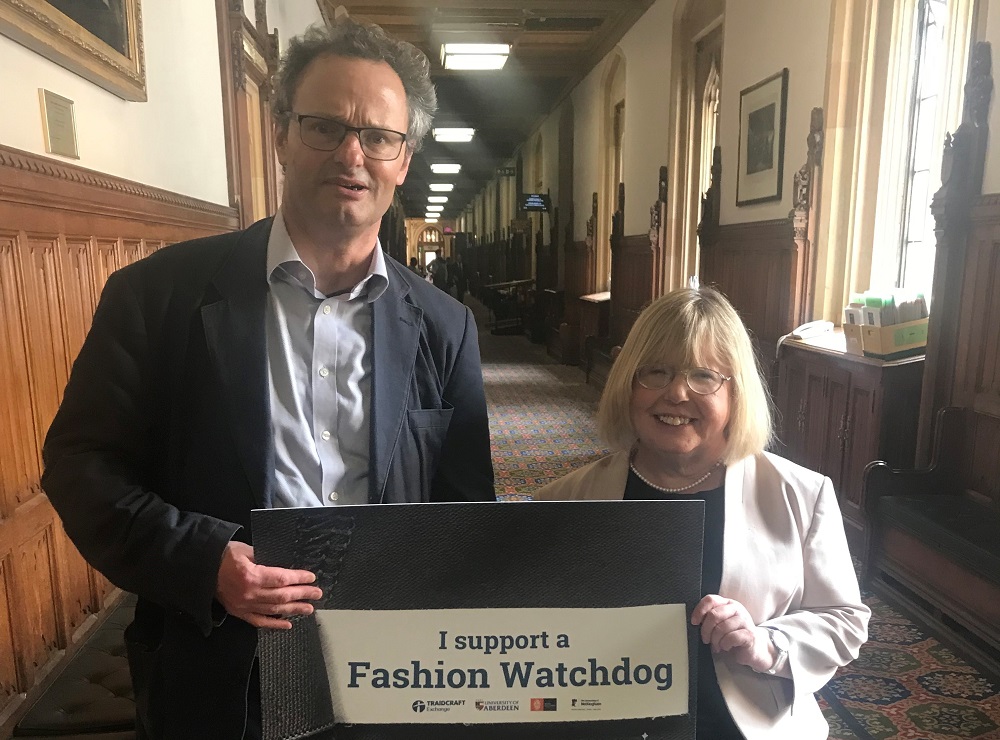
Peter Aldous writes for The House Magazine.
There is no other way of saying it: we are in the grip of a cost of living crisis. Regular reminders of the rising cost of essential goods and services dominate the news and show no sign of abating.
Inflation has been rising since last year and we know that this doesn’t affect everyone equally. Those on the lowest incomes are spending proportionally more of their incomes than those better off on essentials like food and heating. This is an example of the poverty premium: where the things we absolutely cannot live without are more expensive the poorer you are.
While the situation is very complex, there are solutions. National Energy Action and Fair By Design have published a report on the benefits of introducing a social tariff in the energy market to lower the cost of bills for low income households. It’s an idea that finds supporters on all sides of the political spectrum.
A social tariff is a targeted discount energy deal for qualifying low-income consumers. It is a safety net for eligible households struggling to afford their bills. Typically below the price of the cheapest available energy tariff, it is specifically designed to support those living in fuel poverty.
The energy price cap will not protect against unaffordable price rises that the regulator considers reasonable.
To some extent, the protections already in place within the energy market work well. The price cap is there to balance what consumers spend on energy against what suppliers can make in profit. But the cap can only do so much. The cap will not protect against unaffordable price rises that the regulator considers reasonable, such as any increases in the cost to suppliers of buying gas.
We must recognise that there are some consumers who face very real risks as the price to provide energy to our homes rises further. Since April 2022, the price cap has risen by 54 per cent to nearly £2,000. In October 2022 energy bills are predicted to rise to an average of £2,800 a year, a further increase of over 40 per cent. This will inevitably result in more fuel poverty, which is already rising: there are 6.5 million people spending over 10 per cent of their incomes on their fuel bills – the definition of fuel poverty – and if Ofgem’s predictions are correct then next year that number could be 12 million.
We need a social tariff more than ever. And for the social tariff to be effective it needs certain features. It needs to be additional to existing policies: the price cap and the Warm Home Discount Scheme which provides a rebate to some low-income households.
It also needs to be mandated across all suppliers, so some consumers do not end up losing out because their supplier doesn’t go far enough. It needs to be targeted at those most in need (such as households using prepayment meters) and at a minimum it must be priced below the default tariff price cap.
Eligible consumers must also be auto-enrolled on to the tariff. This can be done by using suppliers’ existing customer data and also from data sharing agreements with the Department for Work and Pensions (DWP).
This is an opportunity to make sure those consumers most at risk are protected from rising energy prices now and in the future. It’s a protection that will reduce the number of deaths during the cold winter months, and it ensures that household gas and electricity are affordable for those struggling most in the current economic climate.
